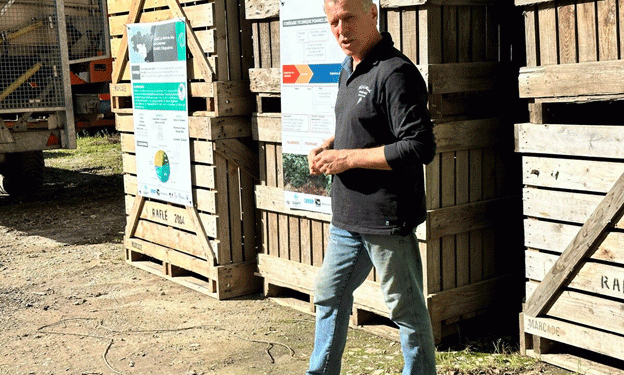Organic farming demands innovation, resilience, and adaptability, especially when cultivating potatoes—a crop notorious for its high maintenance. Nicolas Raflé, a farmer from Cléguérec, France, transitioned to organic farming in 2021 after decades of conventional practices. His journey offers valuable insights into the complexities of sustainable agriculture.
Why Go Organic?
Nicolas began converting his farm to organic in 2019, motivated by:
- Health Concerns: Observing health issues among neighboring farmers exposed to chemicals.
- Market Demand: A rising consumer preference for organic produce.
- Personal Values: Aligning his farming with his ecological purchasing habits.
- Labor Opportunities: Organic farming’s labor-intensive nature allowed him to employ a full-time worker.
This shift expanded his crop rotation from four to 11 crops across 100 hectares, including wheat, maize, broccoli, green beans, and buckwheat. Diversification not only simplifies weed control but also mitigates financial risks.
Organic Potato Farming Practices
Potatoes occupy 9 hectares of Nicolas’s farm, with 80% dedicated to seed production. His approach prioritizes productivity and sustainability:
- Soil Preparation:
- Potatoes follow a legume or cereal cover crop.
- After cover crop mulching, the soil is enriched with 6 tons of poultry manure and 240 kg/ha of potassium chloride, followed by tilling with a Dynadrive.
- Planting Density:
- Approximately 65,000 tubers/ha are planted to maximize tuber count rather than size.
- Weed Control:
- Nicolas uses a spring-tine harrow, making at least four passes annually.
- The first pass targets weeds at the filament stage, requiring swift action to prevent overgrowth.
- Pest and Disease Management:
- Mineral oil sprays (10–12 applications per season) deter aphids, preventing virus transmission.
- Bordeaux mixture with copper (20 kg/ha) combats late blight (Phytophthora infestans).
- Irrigation:
- Potatoes are irrigated from tuber initiation until the end of flowering, consuming up to 800 m³/ha in dry years.
Economic Realities and Yields
Yields on Nicolas’s farm fluctuate between 20 and 45 tons/ha, with a selling price of approximately €500/ton. While the revenue potential is significant, so are the costs. Seed potatoes alone cost €3,800/ha, and annual results are often unpredictable due to weather and disease.
Challenges in Organic Potato Farming
- Pest and Disease Pressure: Despite using approved organic solutions, managing pests and diseases remains labor-intensive.
- High Input Costs: Organic fertilizers and pest control measures are expensive.
- Market Expectations: Consumer demand for visually perfect produce adds pressure to maintain aesthetics, which is harder in organic farming.
Nicolas Raflé’s experience underscores the intricate balance required in organic potato farming. While the environmental benefits and market opportunities are substantial, the financial and labor-intensive nature of organic practices poses challenges. Farmers must combine traditional knowledge with modern techniques, ensuring sustainability without compromising profitability.
As consumer demand for organic produce grows, supporting farmers with research, subsidies, and more flexible market standards will be crucial for the long-term success of organic agriculture.







